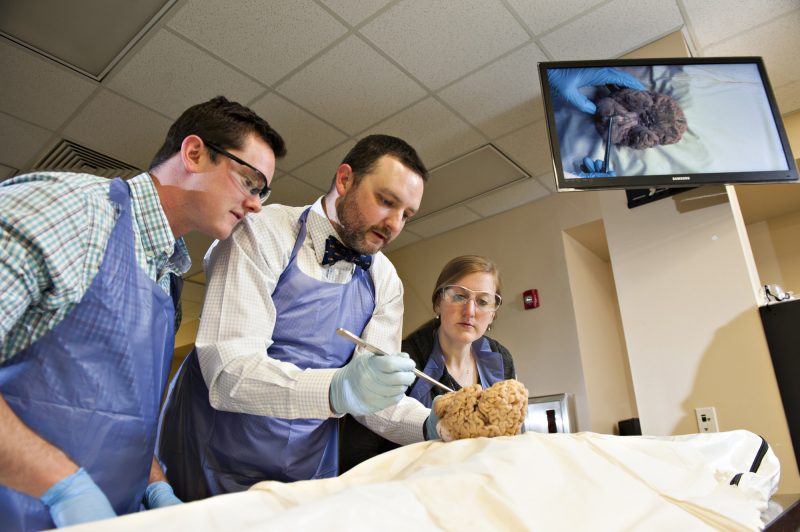
Fascinated by chemistry and biology, Dr. Price Blair spent most of his college career aiming to help invent and test new medicines. But along the way, he discovered a passion for teaching, too.
When he finished his postdoctoral work at Harvard, he applied for pharmaceutical research jobs, but he also applied to teach at University of Lynchburg. That is the job he accepted.
“I chose teaching, and every day I’m glad I did,” said Dr. Blair.
Earlier this year, Dr. Blair won LC’s new Edward A. Polloway Award for Excellence in Graduate Teaching, which recognizes his clear dedication to students.
“Dr. Blair exemplifies the best in teaching at University of Lynchburg and places the success of his students as his top priority,” said Dr. Sally Selden, vice president and dean for Academic Affairs. “In the classroom, he enables and inspires students to learn how to think critically and to master complex scientific content. Dr. Blair seeks to make the campus a place where students can do their best work and be their best selves.”
LC originally hired Dr. Blair to teach in the undergraduate biology program, but he later moved to the School of Graduate Health Sciences, where he teaches pharmacology, neuroanatomy, physiology, and pathology to aspiring physical therapists and physician assistants. Inspired by his love for science fiction, he teaches a Westover Honors colloquium course titled “Frankenstein and the Science of Synthetic Life.”

“Whatever I’m teaching at the time is my favorite course to teach,” he said. If he had to pick one favorite, though, pharmacology would win. He loves delving into how a drug can alter cell mechanics to correct a problem caused by disease. Understanding the inner workings of a cell and a medication is key to understanding the cause and risks of side effects. It’s something that he finds personally interesting to know as well as to teach. “I get really excited to share whatever I know,” he said.
He admitted a slight tinge of jealousy for his students when they leave the classroom for clinical experiences. “They’re going to get to go out and practice what they’re learning,” he said. “But I love it when students share with me what they’ve seen in the clinic. I think that makes me a better teacher when they share what they know.”
The students’ work ethic and thirst for knowledge motivate Dr. Blair and his colleagues. “We are lucky to teach these students. They are so hard working. They are passionate about what they are learning,” said Dr. Blair. “LC students never take success for granted. They work for what they achieve. It inspires me as a teacher to meet their expectations.”

